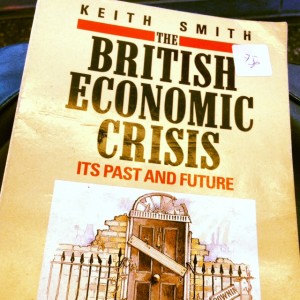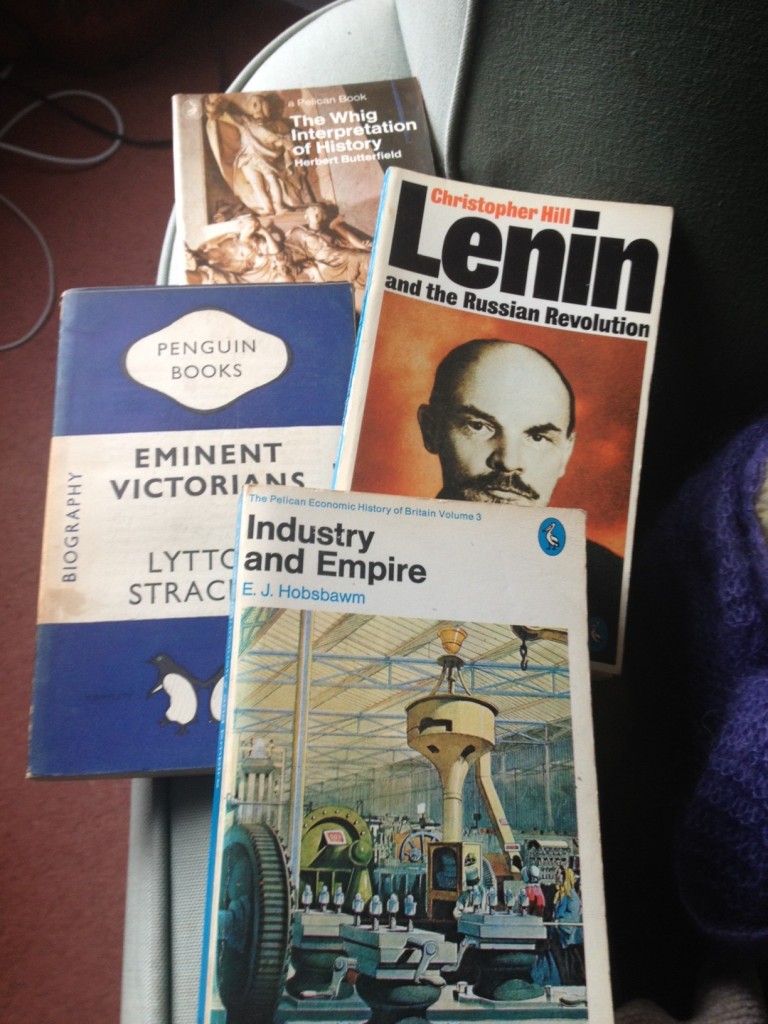My Tube reading lately has been chapters from an excellent new book edited by Nick Crafts and Peter Fearon, [amazon_link id=”0199663181″ target=”_blank” ]The Great Depression of the 1930s: Lessons for Today[/amazon_link]. The comparison between the present day and the 30s has made frequent appearances in post-crisis commentary, so work by economic historians investigating the similarities and differences in forensic empirical detail is most welcome. The cast list of contributors for this book is impressive too, including Charles Calomiris, Timothy Hatton, Barry Eichengreen and other econ history stars.
[amazon_image id=”0199663181″ link=”true” target=”_blank” size=”medium” ]The Great Depression of the 1930s: Lessons for Today[/amazon_image]
In the first two chapters, the editors first give an overview of international experience in the 1930s, and then what lessons that might hold for the present day. They would serve as a stand-alone overview of the issues. The big headline is that among all the causes of the Depression in the 30s, the constraint imposed by the gold standard combined with US and French accumulation of gold stands out for its causal role. The collapse in trade is presented here as a consequence, albeit one that quickly fed into the vicious downward spiral.
For today, that means the monetary response emerges the most important policy difference, a lesson truly learned and applied by the likes of Ben Bernanke and other central bankers. And for all that some groups in some countries are currently experiencing dreadful rates of unemployment, the cost in loss of jobs and human misery has been nothing like as great now as it was then. It is really encouraging to read that policymakers have not in fact been condemned to repeat the same mistakes as their forbears.
This raises the question about the Eurozone, however, the subject of the book’s final chapter by Barry Eichengreen and Peter Temin. Its conclusions are far more depressing. The authors see little room for optimism about any possible route out of the crisis – leaving the Euro is difficult and will cause turmoil, staying in is difficult and will cause political and economic instability. The only possible hope is for European governments to deliver on policies that might stimulate growth. The preceding chapter by Kris James Mitchener and Joseph Mason is somewhat sobering too, as it asks, having avoided earlier policy mistakes, how do countries now exit from their expansionary policies without disrupting the economy too much? They suggest that exit from the policies responding to the Great Depression did not occur until the 1950s; the implication is that we should be thinking on a similar timescale now.
There is much fascinating material in between these early and late chapters – this is a super collection.
I’d like to have read more about France in the 30s, as I hadn’t before realised that its gold hoarding had been larger in scale than America’s – most accounts focus on US policy. The section on the Nazis’ economic appeal is rather sobering, emphasising their ability to prioritise reducing unemployment, introduce large-scale public works, and at the same time keep wage pressure down by abolishing unions and collective bargaining.
The other country that brought unemployment down relatively quickly and realtively far in the 1930s was Britain, via a housebuilding programme – housebuilders then were able to respond quickly to low interest rates, unhampered by mad planning laws, in contrast to today. Another key difference between countries lay in the banking system, with the UK’s then in a much healthier state than the US’s. That balance has reversed now, and it is Britain’s banks that are failing to lend for new investment.
All in all, and continuing one of the themes of yesterday’s post on global governance, this book is an excellent advertisement for the relevance of economic history.


